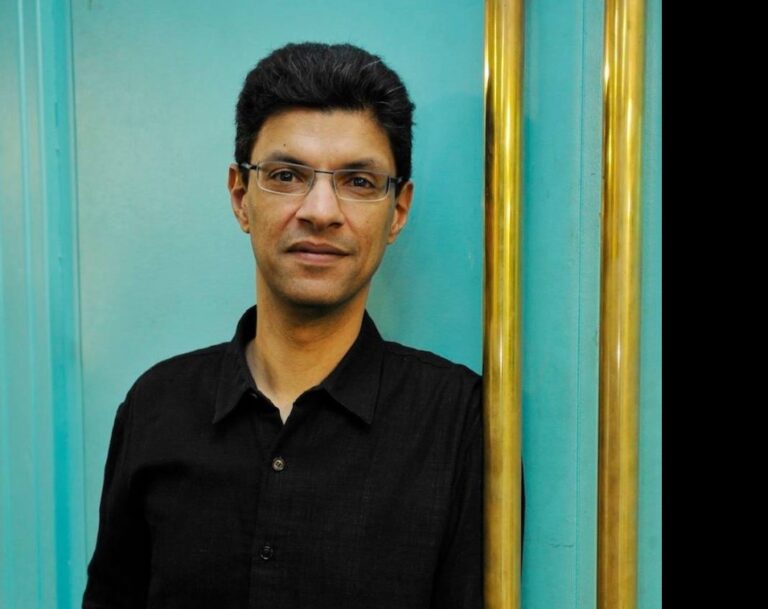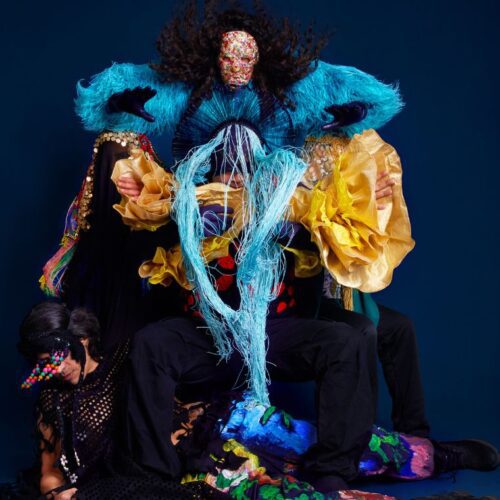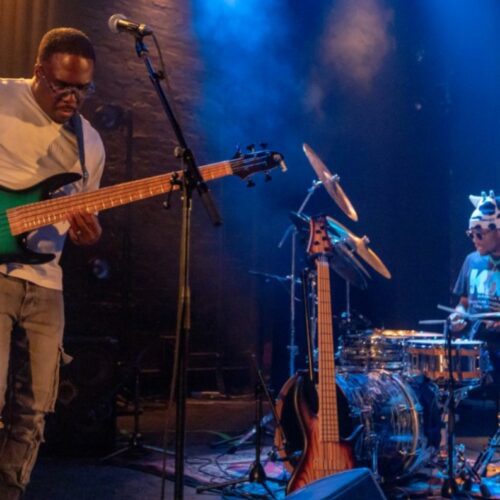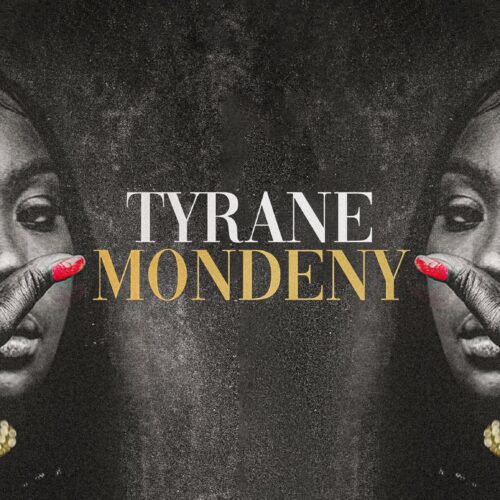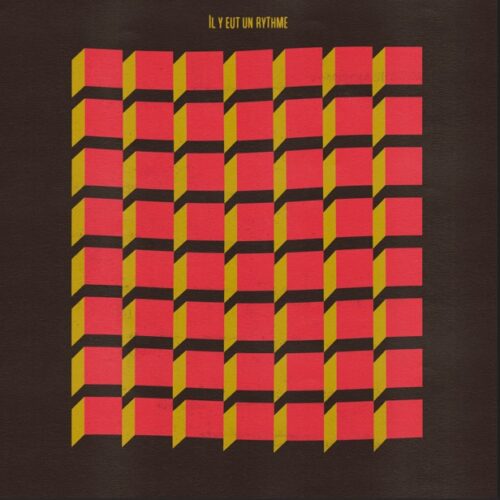Additional Information
On Tuesday evening, Ensemble Paramirabo will welcome Ensemble Variances to Salle Bourgie. Founded in Martinique in 2010 before moving to France, Ensemble Variances aims to create a meeting place for all musical traditions and to create as much new music as possible. This collaboration between France and Quebec was born by chance, in the United States. A meeting between Jeffrey Stonehouse, flutist for Paramirabo, and Thierry Pécou, pianist, composer and founder of the Ensemble Variances, was the starting point for this great collaboration.
The program to be presented next Tuesday consists almost entirely of new works, including one by Thierry Pécou. At the heart of the musical preoccupations are the idea of the pulsation that follows us everywhere, sometimes going unnoticed, and the ecological crisis, which is now impossible to ignore. PAN M 360 caught up with Thierry Pécou to find out more about the Ensemble Variances and the program to be performed at Salle Bourgie.
PAN M 360: Hello! Tell us a little about the Ensemble Variances, which you founded. How did the project come about?
THIERRY PÉCOU: It’s an ensemble that’s about 10 years old now. My main activity is composition, but I’ve always enjoyed being active as a pianist too. For me, being a composer also means being involved in the concert of sound. So I’ve always enjoyed playing with other musicians, and I wanted to create an ensemble with people close to me, to create a kind of laboratory and explore the interpretation of works. That’s how the ensemble came about.
PAN M 360: What type of repertoire does Ensemble Variances most often perform?
THIERRY PÉCOU: At the outset, our idea was not only to create a performance laboratory but also to explore oral traditions. The ensemble was originally founded in Martinique, and we stayed there for a year to work on a project on traditional Martinican music. Then we came back to the continent, to France, and continued to work on projects with Turkish, Indian, Chinese and other musicians. That’s the ensemble’s DNA. It’s an ensemble that strives for openness, both in contemporary writing aesthetics and in the encounter between orality and writing.
PAN M 360: And how did you come to work with Paramirabo?
THIERRY PÉCOU: With Paramirabo too, it was an encounter. You could also say that with Ensemble Variances, one of the things that really guides us is always to go out and meet others. As it happens, we were due to tour the United States in March 2022, but needed to replace our flautist at the last minute. We had the idea of looking for someone who was already on American soil, and we decided to look for someone from Montreal. That’s how we met Jeff (Jeffrey Stonehouse), whom I didn’t really know, but who had been recommended to me by Claire Marchand, the director of the Canadian Music Centre, who is herself a flautist.
So we did our tour with Jeff, and we felt there was a very strong affinity, so we started putting together a project with his ensemble, Paramirabo. And the project came together very quickly because barely a year later, we’re presenting this program.
PAN M 360: How do you set up a project like this, when the two ensembles are separated by an ocean?
THIERRY PÉCOU: It’s true that our ensembles are separated by an ocean, but at the same time, they have something very similar in the way they work. Also, we realized that we had an equivalent core of musicians, i.e. these are two ensembles of the same size, which can double up. We thought this was an interesting feature to exploit in the architecture of the program and in the line-up we were going to present. After that, Jeff and I had a lot of discussions about the program, the composers we wanted to play…
PAN M 360: And as a starting point for your program, you have this piece by Steve Reich…
THIERRY PÉCOU: Jeff and I were immediately drawn to the idea of playing a piece by Steve Reich. Initially, we wanted to play the double sextet, i.e. exactly the formation of our respective ensembles but doubled. But in the end, we decided to choose a different one, since the double sextet is very often performed and Paramirabo had played it several times recently.
In the end, we chose a piece emblematic of Steve Reich’s last period, called Pulse (which, incidentally, is the title of the concert…) And this idea of pulsation was very inspiring for the rest of the program.
PAN M 360: What does this pulsation mean to you? Does it manifest itself in the same way in all the pieces on the program?
THIERRY PÉCOU: It’s true that when we think of pulsation, we think of something fast, of a clearly identifiable rhythm that allows us to have a pulse that we perceive directly. In some of the pieces on the program, what’s interesting is that there are very slow, very interior pulsations. And so the music unfolds in a way that, when you listen to it, you almost never hear the pulse, but it’s there, underlying it. And if the performers don’t feel it, the music can’t unfold.
PAN M 360: If we read the description of the concert on the Le Vivier website, which produces this concert, we hear a lot about a program that is part of a response to, or awareness of, the current ecological crisis. How do you see this manifesting itself in the program?
THIERRY PÉCOU: It’s true that this is a subject that is present in the consciousness of artists in general. For us, the way we’ve tried to reflect on the issue is through our relationship with the environment and nature. From this came the idea of pulsation, of Pulse, which is the pulsation, the pulse, the beat, almost the primordial beat, the heartbeat.
So it really is life, in the original sense of the word. That’s what we’re trying to convey in our concert, this idea of pulsation. And also, particularly in my piece, which is very much inspired by Balinese gamelan, to turn to a culture which, unlike our Western culture unfortunately, has remained very close to the natural environment. For example, in Balinese music, I find that there are many elements of sound architecture that are like echoes of the natural world.
PAN M 360: And personally, how do you integrate these issues into your own compositions?
THIERRY PÉCOU: It’s a subject I’ve been integrating for a long time, even before it became as urgent as it is today. It’s a subject that’s been with me for several years. I have two examples to give you.
First of all, there’s an opera I composed in collaboration with the Navajo poet Laura Tohe, entitled Nahasdzáán in the Glittering World. The Glittering World is a Navajo expression for the world we live in today. It’s a play about pollution and the need to respect nature. It’s almost a manifesto, really.
There’s also a very emblematic piece called Méditation sur la fin de l’espèce, which I wrote in 2018 and which incorporates real whale songs broadcast over loudspeakers. This piece was composed in the spirit and with the idea of calling attention to endangered species, in this case, animal species, but also plant species. The question of biodiversity is at the heart of this piece.
PAN M 360: Let’s get back to the program for this concert, Pulse. You’ll be performing, but you’ll also be taking part in the creation of one of your own works. How do you approach this dual role?
THIERRY PÉCOU: It’s a role I like to take on. What’s surprising, in fact, is that the composition process is a very solitary thing. When you know who you’re composing for, you visualize and integrate the characteristics and qualities of the performers you’re going to work with. And then, afterwards, when you move on to the realization, I’d say there’s a kind of separation. I almost forget that I’m the one who composed the music I’m going to work with. So I take on the role of performer in my own right, with a kind of detachment from the fact that I wrote the piece.
PAN M 360: Were the other pieces on the program also composed for the occasion?
THIERRY PÉCOU: The initial spark for the program was Steve Reich’s piece. Jeff and I then asked ourselves which composer we could include in the program who would resonate with Reich’s piece and the notion of minimalism, or who would be an extension of it. We also wanted the project to have a strong female presence. So we came up with the idea of having this piece by Missy Mazzoli, who is part of Paramirabo’s repertoire, and who is, I think, part of this new generation that follows in the footsteps of the twentieth century. Then there’s Cassandra Miller, who takes a very interesting approach to minimalism, counterbalancing this notion of pulsation. Finally, Mike Patch’s piece for solo piano is a piece that works a lot on harmony, and for me it gives the image of a mirror that cuts the program in two, putting the two parts of the concert face to face, so to speak.
PAN M 360: Finally, if you had to describe the concert in a few words, what would you say?
THIERRY PÉCOU: I’d say minimalism, pulsation, too. I’d like to say harmony, in other words, musical hedonism, generous sound, beautiful sound, which simply brings us back to the beauty of nature. And all this brings us back to the environmental question.
Ensemble Variances and Paramirabo present the Pulse concert at Salle Bourgie on Tuesday, October 24 at 7:30 pm. Info and tickets HERE.
